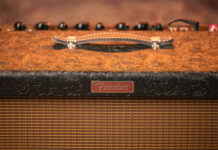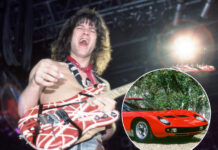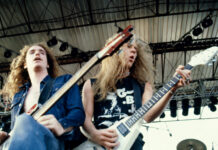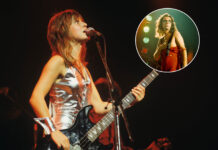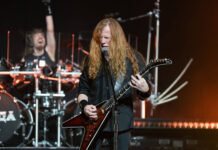
Meet Major Murphy: the Michigan quartet celebrating the indie-rock songbook
There is so much to be said for punk spirit and straight ahead, unrefined expression. Equally, there’s an awful lot to be said for records that remind you of craft, care and attention. Major Murphy’s Access sits proudly in the second camp.
READ MORE: “There’s a lack of preciousness that I think is precious”: Big Thief’s Buck Meek on the human connection in new LP Two Saviors
The Grand Rapids, Michigan group – guitarist and vocalist Jacob Bullard, bassist and vocalist Jacki Warren, drummer Brian Voortman and multi-instrumentalist Chad Houseman – treat the components of indie-rock with the same sort of fastidiousness singer-songwriters reserved for forays into Beach Boys-derived orchestral pop in the 70s, twisting fuzzy riffs and somnambulistic hooks around songs that split the difference between Pavement and Emitt Rhodes.
Following up a couple of home recorded EPs and their debut LP No. 1, Major Murphy have delved deeper into their influences and preoccupations, assembling a record that balances a wistful sort of nostalgia with the sense that this creative moment will also soon pass.
Here Bullard (who alongside Warren recently backed Katie Crutchfield for a stellar performance of Waxahatchee’s Lilacs on Kimmel) talks us through its construction – which was an almost two-year project completed alongside Mike Bridavsky and Ben Lumsdaine at Russian Recording in Bloomington, Indiana – and the influences he sought to celebrate with the record’s vivid style. “Something in the way,” runs Access’s half-murmured opening line, Bullard conjuring Kurt Cobain before putting the moment in context: “I want to be part of it.”
This is a very deliberate record, from concept through to execution. When you first set out, what did it look like in your mind?
“The songs are grappling with polarities so when that came to the technical sounds I wanted to try to get very ‘close’ sounding textures as well as very ‘big’ sounds. I wanted to express a sensation of suspense. Very basically, life and death and everything that hangs in the balance.”
You changed your recording approach here, tracking individually to a click, and have really leaned into that textural approach. Was that decision preempted by the nature of the songs?
“Yes, I think so, but also a lot of it has to do with the fact that we are still experimenting and trying to find out what our preferred process is. But also, yes, the songs themselves were interested in a level of minutiae that I felt could only be achieved if we worked to a click.”
There’s something very satisfying to me about songs that are searching or uncertain lyrically but melodically concrete and aesthetically-driven. How do you view structure in your writing?
“I like having the structure. Song structures give you a container to place all of these emotions and ideas, and there is so much tradition there to draw from. Like a lot of artists, I think more often than not, I have the structure plotted out before all the lyrics are in place and am just trying to listen to what the music is trying to express.”
There is a noticeable sense of warmth to the presentation and a meticulousness that reminds me of fussy songwriters like Nilsson or the Carpenters. Where does that impulse come from?
“Some of that is probably from using a lot of vintage and analogue gear and working with someone who really knows how to use it. As for the impulse, with this one we wanted an epic, dramatic-feeling record so it made sense to have things very carefully placed and performed. I love Nilsson’s music. He definitely had a flair for drama.”
Can you talk me through your gear on the record? Were there any instruments or setups that stand out as important to the finished product?
“On the less rocking songs, we did quite a few guitars straight into the board which was super fun and I’d like to keep doing that in the future. There were a lot of awesome guitars and amps around at the studio to work with. One guitar was a Fender Jazzmaster, which I ended up using a lot.”
Who inspired you to start playing, and how is that thrill tied to Major Murphy today?
“Part of the sound of this record was kind of wanting to revisit the music and sounds we all first connected with when we were learning how to play. I got a guitar in 2002 so at that time learning how to palm mute was basically my first order of business.
“The band that really started it all for me was Relient K. I liked how diverse their songs and albums were and it seemed like they were having a lot of fun. Throughout junior high and high school I was also playing a few times a week in various church bands, playing contemporary Christian music, which is very informed by Britpop, U2, and Coldplay.”
Major Murphy’s Access is out on 2 April through Winspear.
The post Meet Major Murphy: the Michigan quartet celebrating the indie-rock songbook appeared first on Guitar.com | All Things Guitar.
Source: www.guitar-bass.net

